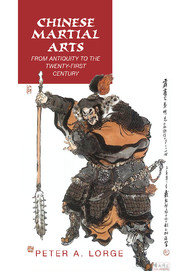Book contents
- Frontmatter
- Contents
- Preface and Acknowledgments
- Introduction
- 1 From the Stone Age to the End of the Spring and Autumn Period
- 2 The Warring States Period
- 3 The Qin and Han Dynasties
- 4 The Six Dynasties
- 5 The Sui and Tang Dynasties
- 6 The Five Dynasties and Ten Kingdoms and the Song Dynasty
- 7 The Yuan Dynasty
- 8 The Ming Dynasty
- 9 The Qing Dynasty
- 10 Post-Imperial China
- Conclusion
- Notes
- Bibliography
- Index
Conclusion
Published online by Cambridge University Press: 05 December 2011
- Frontmatter
- Contents
- Preface and Acknowledgments
- Introduction
- 1 From the Stone Age to the End of the Spring and Autumn Period
- 2 The Warring States Period
- 3 The Qin and Han Dynasties
- 4 The Six Dynasties
- 5 The Sui and Tang Dynasties
- 6 The Five Dynasties and Ten Kingdoms and the Song Dynasty
- 7 The Yuan Dynasty
- 8 The Ming Dynasty
- 9 The Qing Dynasty
- 10 Post-Imperial China
- Conclusion
- Notes
- Bibliography
- Index
Summary
Chinese martial arts is a living tradition with a very long history. As something alive it continues to change, in both meaning and practice, making simple conclusions about what it is, was, or even should be, impossible. In that respect it is no different from other Chinese practices, where centuries or even millennia of tradition bear strongly on current practitioners. As a physical practice, martial arts keeps the historian at arm’s length by the limitations of the textual and archaeological sources. It is usually impossible to prove the continuity of any skill performed over the centuries. At the same time, the legitimacy of tradition, however understood, must compete with the needs or desires to innovate and absorb new techniques. If martial arts was a dead tradition this would not be difficult; the lines would be clear between the past and the present. The struggle to balance out tradition, innovation, and meaning is therefore a positive sign of vitality.
This vitality, however, is a great challenge for the researcher. Throughout this book I have struggled to construct a narrative of martial arts in Chinese culture and society that places specific practices in a broader context. The constraints of space and clarity (not to mention time) frequently forced significant aspects of the history of the martial arts – most obviously religion, theater, and literature – off to the side in favor of more general historical themes. In order to argue for the consistent importance of martial arts, I have spread my coverage more evenly over time at the expense of the availability of sources. Far more can be written about martial arts in more recent periods than in the distant past, but it seemed that apportioning coverage in direct reflection of the source materials might prejudice the reader into seeing martial arts as more important in the modern period than in ancient times. Martial arts has always been important in every society, not only in China, though the specific arts and the categories of practice understood to be “martial” are contested.
- Type
- Chapter
- Information
- Chinese Martial ArtsFrom Antiquity to the Twenty-First Century, pp. 238 - 244Publisher: Cambridge University PressPrint publication year: 2011



